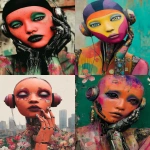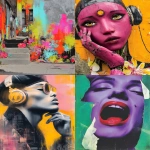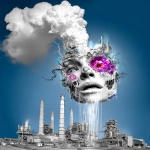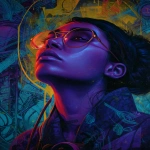Explore the Best AI Image Gallery

Pixelated Portraits: How AI Image Generation is Transforming Marketing
The world of marketing is undergoing a seismic shift, fueled by the rise of artificial intelligence (AI). One of the most captivating developments in this realm is AI image generation, a technology that empowers marketers to create stunning visuals with unprecedented ease and efficiency. From eye-catching social media graphics to realistic product mockups, AI-generated images are rapidly becoming an integral part of marketing campaigns across industries.
This blog post delves into the transformative impact of AI image generation on the marketing landscape, exploring its potential uses, ethical considerations, and future trends.
A Creative Revolution: Unlocking New Possibilities
AI image generators leverage powerful algorithms trained on massive datasets of images. These algorithms can analyze patterns, styles, and compositions to generate original visuals that are tailored to specific requirements. Marketers can now create high-quality images without relying heavily on graphic designers or photographers, opening up a world of creative possibilities.
- Social Media Engagement: AI-generated images can be used to create captivating social media posts that grab attention and drive engagement. From eye-catching product visuals to shareable infographics, AI can help brands stand out in the crowded digital landscape.
- Personalized Marketing: AI image generation enables marketers to create personalized visuals that resonate with individual customers. By analyzing customer data and preferences, AI can generate images that are tailored to specific demographics or interests.
- Content Creation Efficiency: Marketers often require a high volume of images for various purposes, such as blog posts, website content, and marketing collateral. AI image generators can significantly streamline this process, saving time and resources.
Ethical Considerations: Navigating the Complexities
While AI image generation offers immense potential, it also raises ethical concerns that need to be carefully addressed.
- Copyright and Intellectual Property: The ownership of AI-generated images is a complex legal issue. Questions arise about who holds the copyright – the developer of the AI algorithm, the user who provides the input, or the AI itself?
- Bias and Representation: AI algorithms are trained on existing data, which can contain biases that are reflected in the generated images. Its crucial to ensure that AI-generated content is diverse and representative of all demographics.
- Transparency and Accountability: Marketers should be transparent about their use of AI image generation and disclose when AI-generated content is used. Consumers have a right to know how images are created.
The Future of AI Image Generation in Marketing
AI image generation is poised for rapid evolution, with ongoing advancements in algorithms and computing power. We can expect to see:
- More Realistic and Creative Outputs: AI will continue to generate increasingly realistic and creative images, blurring the lines between human-created and machine-generated content.
- Personalized and Interactive Experiences: AI-powered image generation will enable marketers to create personalized and interactive experiences for customers, tailoring visuals based on individual preferences and behaviors.
- Integration with Other Marketing Technologies: AI image generation will become seamlessly integrated with other marketing technologies, such as CRM systems and email marketing platforms, creating a more holistic and data-driven approach.
As AI image generation continues to evolve, marketers need to stay informed about its capabilities and limitations. By embracing ethical practices and harnessing the power of AI responsibly, marketers can unlock new creative frontiers and drive meaningful connections with their audiences.






](https://images.ai-img.art/thumbnails/150/664a559b73eaff070d6f7fc7b3b151718aef9fa3a3f12f90b3c9092ceaa3cb56.webp)
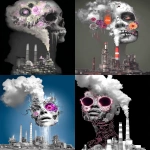

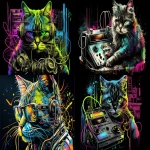










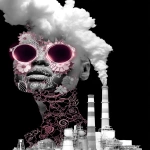



](https://images.ai-img.art/thumbnails/150/33d5e6d1da2b8ec2c4b8eab20d051c27c26d7a4991a77faf06fd03e96617fb1e.webp)


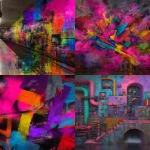

](https://images.ai-img.art/thumbnails/150/1aa8215ea9a4f6970e81a10bdb4feb3b08d5e1a202c3c7ed2c9380f2f63d5a74.webp)
